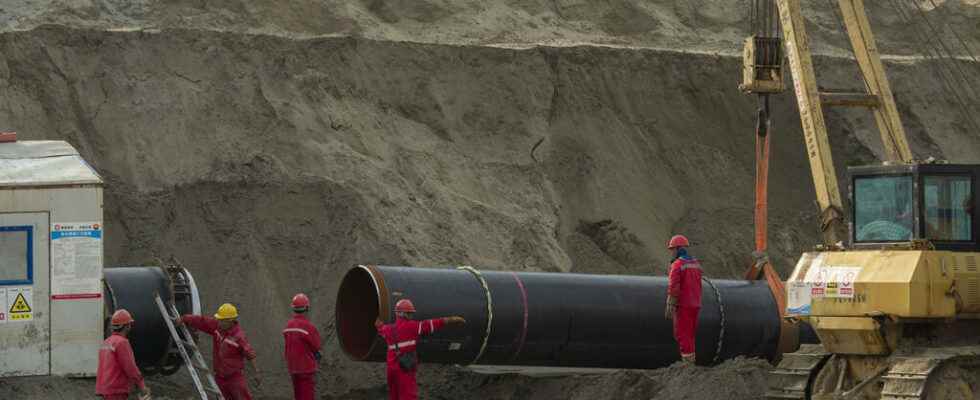The strategic partnership between Moscow and Beijing is gradually strengthening. The Russian gas giant Gazprom announced Tuesday, September 6 the signing of an agreement under which China will now pay its contracts in yuan and rubles, instead of the dollar. A way for the two countries to show their opposition to American foreign policy and circumvent Western sanctions vis-à-vis Moscow.
A payment mechanism mutually beneficial, timely, reliable and convenient “: it is in these terms that Alexei Miller, the boss of Gazprom, qualified the agreement allowing Beijing to pay for its deliveries of Russian gas ” in rubles and yuan “. A way for Moscow and Beijing to break free from the dollar at a time when their relations with Washington are at their lowest, reports our correspondent in Moscow, Jean-Didier Revoin.
In addition, new long-term gas purchase and sale contracts via the pipeline ” Siberian Force », bound for China, have been concluded. Moscow began delivering gas from the more than 3,000 km pipeline at the end of 2019. In early February, before the start of fighting in Ukraine, Russia had signed an agreement with Beijing providing for the delivery of 10 billion cubic meters by year, valued at $37.5 billion over 25 years, based on a price of $150 per 1,000 m3.
While Gazprom acknowledges a drop of more than 14% in gas extraction between January and June this year, the Russian gas giant claims that gas exports to China ” regularly exceed the daily contractual quantities “. This without giving precise figures.
While the Kremlin welcomed the approach balanced of China towards the Ukrainian crisis and of Beijing’s understanding of the reasons for the Russian offensive, the fact remains that in the long term, Moscow must absolutely find new outlets for gas. Because the European Union no longer buys it.
China remains its main alternative, but cannot on its own guarantee equivalent income.
► Read also: Gas: by tightening the tap, Russia and Gazprom put pressure on European solidarity
